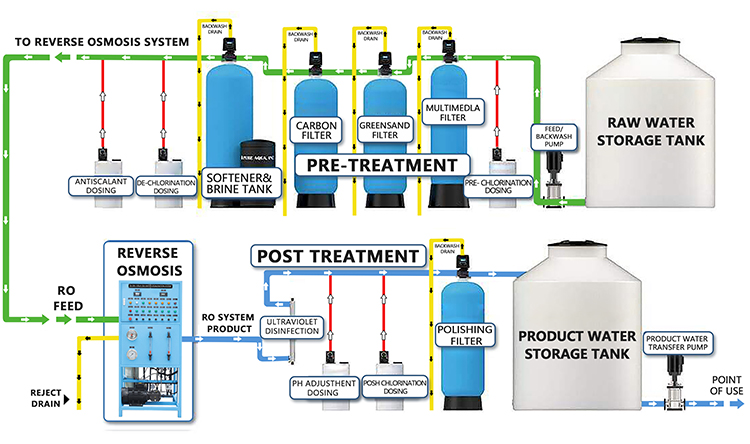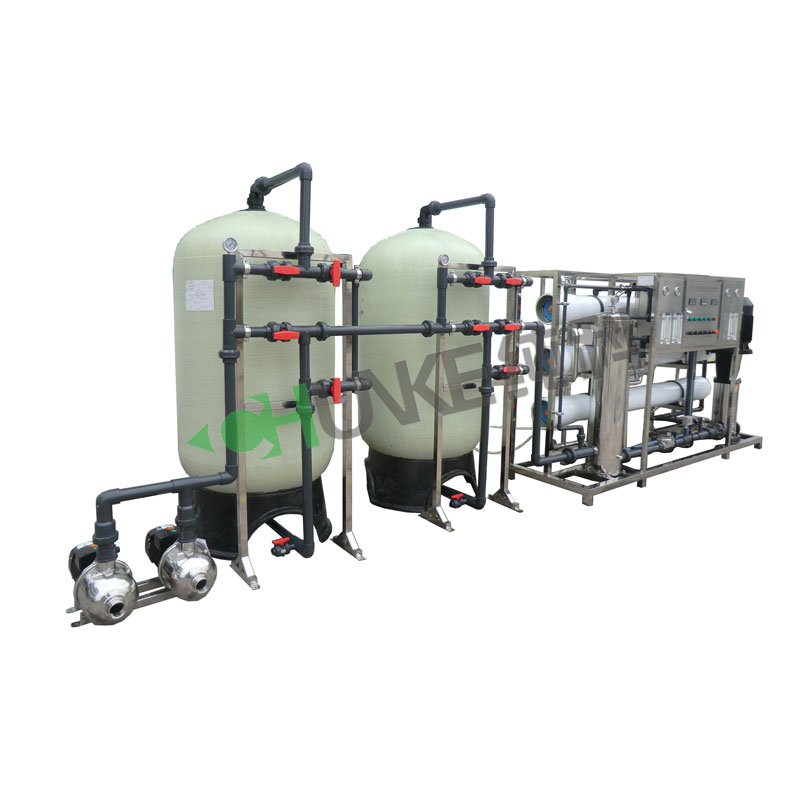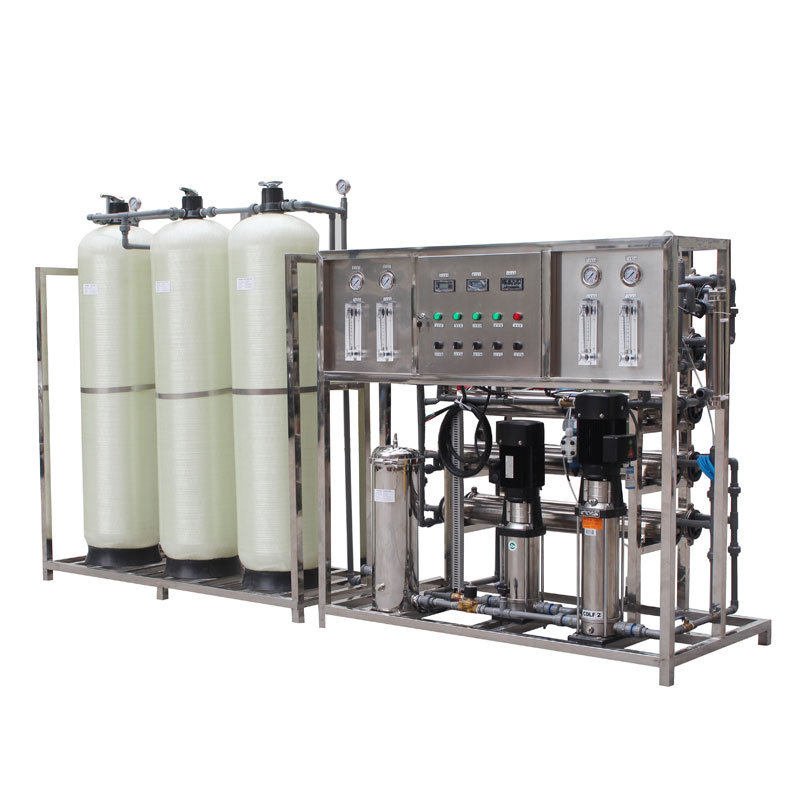What type of water purification system is best for home use?
In recent years, various types of home water purification systems have appeared on the market, ranging from simple water filter kettles to complex multi-stage filtration systems. So, which water purification system is best for home use?
This article will analyze the functions, advantages and disadvantages, and applicable scenarios of different types of water purification systems in detail to help readers make wise choices.

Common types of home water purification systems
At present, the common home water purification systems on the market mainly include the following types:
● Water filter kettle
● Tabletop water purifier
● Faucet water purifier
● Pre-filter
● Reverse osmosis (RO) water purifier
● Ultrafiltration (UF) water purifier
We will introduce these water purification systems one by one and analyze their characteristics, advantages and disadvantages, and applicable scenarios.
1. Water filter kettle
A water filter kettle is a simple and convenient water purification device, usually consisting of a kettle body and a replaceable filter element. Users only need to pour tap water into the kettle and filter it through the filter element before drinking.
Advantages:
Easy to use, no installation required
Cheap, suitable for families with limited budget
Easy to carry, suitable for renting or temporary residence
Disadvantages:
Filter element needs to be replaced frequently, and the long-term use cost is high
Limited filtering capacity, unable to remove all harmful substances
Applicable scenarios:
Small families or singles
Temporary residences or renters
2. Desktop water purifier
Desktop water purifiers are usually placed on the kitchen countertop and connected to tap water through pipes for filtration. This type of water purifier mostly uses a multi-stage filtration system, including activated carbon filter elements, ultrafiltration membranes, etc.
Advantages:
Easy to install, no professional tools required
Good filtration effect, can remove most suspended matter and odors
Some models have hot and cold water functions
Disadvantages:
Occupies a certain amount of countertop space
The filtration effect is not as good as reverse osmosis water purifiers
Applicable scenarios:
Small and medium-sized families, especially families with large kitchen space
Families that pursue better water quality but do not need extremely pure water
3. Faucet water purifier
The faucet water purifier is directly installed on the faucet and simply filters the water through the built-in filter element. This type of water purifier is small in size and easy to install.
Advantages:
Easy to install and disassemble, suitable for families who move frequently
Affordable price, suitable for users with limited budget
Ready to use, easy to use
Disadvantages:
Limited filtering effect, cannot remove all harmful substances
Filter element needs to be replaced frequently
Applicable scenarios:
Users of rented houses or temporary residences
Small families with low requirements for water quality

4. Pre-filter
Pre-filter is usually installed at the entrance of the water pipe, mainly used to remove large particles of impurities in the water, such as mud, rust, etc. As the first line of defense for household water use, it can protect subsequent water purification equipment and household appliances.
Advantages:
Protect subsequent water purification equipment and household appliances, and extend service life
Simple maintenance, usually no need to replace the filter element frequently
Disadvantages:
Can only remove large particles of impurities, cannot purify water quality
Need to be used in conjunction with other water purification equipment
Applicable scenarios:
All households, especially in areas with poor tap water quality
Use with other water purification equipment
5. Reverse osmosis (RO) water purifier
Reverse osmosis water purifier is one of the most efficient water purification equipment at present. It uses reverse osmosis membrane technology to remove most dissolved solids, bacteria, viruses, etc. in water.
Advantages:
High filtration accuracy, can remove almost all harmful substances
The water quality is pure and can be drunk directly
Disadvantages:
Complicated installation, requires professional installation
High wastewater rate, low water resource utilization efficiency
High price, suitable for families with sufficient budget
Applicable scenarios:
Families with extremely high water quality requirements
Medium and large families with conditions for installation and maintenance
6. Ultrafiltration (UF) water purifier
UF water purifier uses ultrafiltration membrane technology to remove suspended matter, bacteria, viruses, etc. in water, but cannot remove dissolved solids and some harmful chemicals.
Advantages:
High filtration accuracy, good water quality
Low wastewater rate, high water resource utilization efficiency
Relatively simple installation
Disadvantages:
Cannot remove all harmful substances, the filtration effect is not as good as reverse osmosis water purifier
The filter element needs to be replaced regularly, and the maintenance cost is high
Applicable scenarios:
Small and medium-sized families have high requirements for water quality, but limited budget
Areas with good tap water quality

Overview and expert advice
Each type of water purification system has its own unique advantages and disadvantages and applicable scenarios. Home users should choose according to their own needs, budget and use environment. Here are some suggestions from several water treatment experts:
Expert 1: Professor Li
“For most families, desktop water purifiers and ultrafiltration water purifiers are the most cost-effective options. They can effectively improve water quality without producing a lot of wastewater like reverse osmosis water purifiers. If there are elderly or children in the family who have high requirements for water quality, you can consider installing a reverse osmosis water purifier.”
Expert 2: Engineer Zhang
“The pre-filter is a basic device that all families should consider installing. It not only protects subsequent water purification equipment, but also extends the service life of household appliances. For some areas with poor tap water quality, the role of the pre-filter is particularly important.”
Expert 3: Dr. Wang
“Water filter jugs and faucet water purifiers are suitable for users with limited budgets or unstable living environments. Although their filtering effect is not as good as other types of water purifiers, they are still helpful in improving drinking water quality.”
Conclusion
Choosing a water purification system suitable for home use requires comprehensive consideration of many factors, including the health needs of family members, economic budget, installation environment, etc. By understanding the characteristics and applicable scenarios of different types of water purification systems, users can make more informed choices. No matter which type of water purification system you choose, regular maintenance and filter replacement are important measures to ensure water safety.




